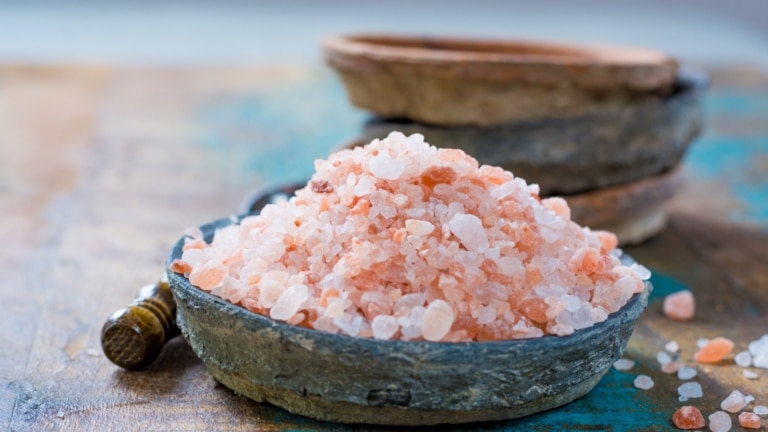We hear from many quarters that salt is good for us as long as it is used in a high quality form. Himalayan salt or sea salt are nutritious salts with a high mineral content, but these salts hinder our body’s cleansing processes.
They do not have the life force like the mineral salts in celery juice. The salt in celery, called sodium cluster salts (a subgroup of sodium), ensures that toxins are removed from the body and pathogens are destroyed.
How salt works
Himalayan salt or sea salt do not have this detoxifying effect. Quite the opposite. They have a dehydrating effect. They remove important water from certain areas of our body and direct it to places in our body where we do not need it. This can lead to swelling, water retention and unwanted weight gain, among other things. Salt stops toxins from leaving our body. It causes toxins to concentrate in the organs, pushing much-needed water away from the organs and making us more dehydrated. When we are dehydrated, it is almost impossible to rid ourselves of the toxins. Most people have had chronic dehydration for years. Furthermore, salt deprives our natural killer cells of water, which in turn limits the immune system and its ability to detect and destroy pathogens.
Used to too much salt
If you add a small pinch of high-quality sea salt or Himalayan salt to a home-prepared dish, this does not pose a major problem. Rather, we should be aware of how much salt we consume through consuming meals in restaurants (or with friends and family) and through ready-made meals take us. In addition, many people have the habit of frequently reaching for the salt shaker and adding salt to our food. We often don’t realize that our food already contains a large amount of salt. The amount of salt we are used to these days is no longer healthy for our bodies and is a real hindrance, especially when it comes to detoxification.
What about foods that naturally contain salt?
As already mentioned, the negative properties of table salt do not apply to the sodium cluster salts in celery. Things are also different with the salts in edible seaweed such as dulse or kelp. They contain a naturally controlled amount of salt from the ocean. We even benefit from sea vegetables because, among other things, they remove radiation from our bodies. The salt does not hinder this detoxification process because the salt content in sea vegetables is too low. In general, there is a big difference between table salt and the salt that occurs naturally in healing foods. Consuming a piece of seaweed cannot be compared to consuming a slice of pizza.
Conclusion:
If you are very concerned about your healing, you should not underestimate the negative effects of salt. In order to specifically detoxify the body, it is best to avoid salt completely.
